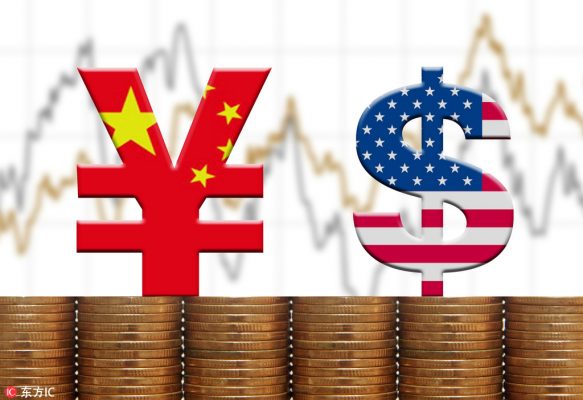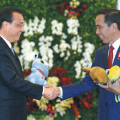
China imposed a 25 percent tariff on an additional $16 billion of imports from the United States in response to the latest US duties, leading to a total of $50 billion worth of goods subject to tariffs from each side since early July as US President Donald Trump’s administration continues to adopt unilateral trade policies.
China’s latest tariff was imposed on Thursday on 333 categories of US products, including coal, bicycles, trucks, engines and chemicals, according to the Customs Tariff Commission of the State Council.
The move comes after Washington levied a 25 percent tariff on $16 billion worth of Chinese products such as semiconductors on Thursday, after first imposing tariffs on $34 billion of Chinese imports including electrical and medical equipment in July.
Calling the US move “arbitrary”, the Ministry of Commerce said China will have to take countermeasures to hit back.
Late on Thursday, the ministry announced that China filed a complaint against the latest US tariffs at the World Trade Organization.
China resolutely opposes the latest US tariff move under Section 301 of the US Trade Act of 1974, the ministry said in a statement.
Vice-Minister of Commerce and Deputy China International Trade Representative Wang Shouwen led a delegation to Washington for two days of talks beginning on Wednesday.
Also on Thursday, Foreign Ministry spokesman Lu Kang said China hopes the two sides will meet each other halfway and achieve good results in a rational and pragmatic manner.
Business executives warned that the escalating Sino-US trade tensions will financially burden manufacturers, farmers and service sector firms in both countries, and create uncertainties for global economic growth.
Denmark’s Maersk Line, the world’s largest container shipping operator by fleet size, told China Daily that global trade could be reduced from 0.1 percent to 0.3 percent as a result of the US-initiated trade tensions, based on its latest external analysis.
Wu Dongxu, general manager of the Foreign Investment Department at Beijing-based Transcontinental Management Consultancy, warned that negotiations between the two countries will be long and bumpy.
“If China maintains healthy growth, it would help to promote the global economy,” said Gao Yan, chief executive officer of the China unit of German industrial giant ThyssenKrupp AG.
“On the other hand, if China suffers economic challenges, then it will become a global challenge.”


